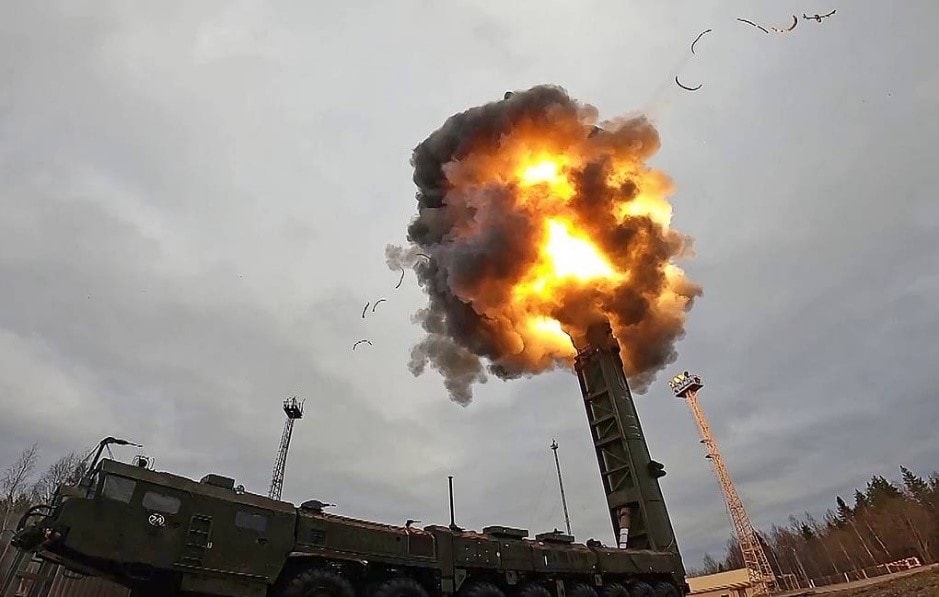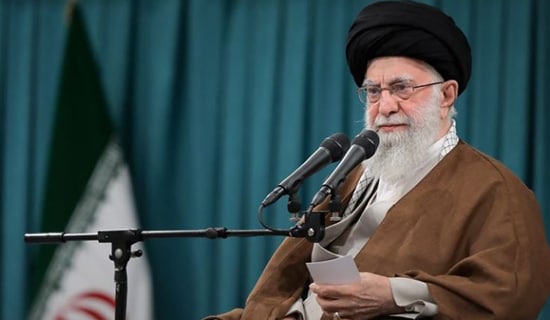On October 6, 2018, an article titled "Macron's Anti-Iran Mission" by Mohammad Ghaderi, chief editor of the Iranian Foreign Ministry daily Tehran Times and the foreign news director-general at the Iranian news agency Mehr, was published by both news outlets.
According to Ghaderi, in August 2017 French President Emmanuel Macron had reached a secret agreement with U.S. President Donald Trump on "changing the content of the Joint Comprehensive Plan of Action" (JCPOA). Proof of this anti-Iran policy, stated Ghaderi, can be seen in Macron's recent statements at the U.N. General Assembly; he added that France and the U.S. are "try[ing] to figure out the final 'isolation of Iran in the region'" by advancing initiatives against it regarding its missile program and regarding the cancellation of the JCPOA, despite Macron's announcement of his support for the deal. He also noted that the French were behind the "delaying [of] the presentation of the Europeans' package of proposals to Iran" with the aim of pressuring Iran to change its position on regional issues, on the orders of the U.S. administration.
The following is Ghaderi's article, as published in English by Tehran Times and Mehr on October 6, 2018: [1]
Left: Photo accompanying the article in Mehr, captioned "French President Emmanuel Macron continues to play an invisible, but uninterrupted game on the U.S. ground." Right: Photo accompanying the article in Tehran Times.
"In August 2017, an agreement was reached between the presidents of France and the United States on 'changing the content of the Joint Comprehensive Plan of Action.'
"The changes were supposed to cover the four controversial issues (the removal of so-called sunset clauses, inspection of Iranian military sites, the inclusion of Iran's missile capability in the JCPOA, and limiting Iran's power in the region).
"The outcome of this secret agreement could then be detected in the remarks made by France's young president in the form of 'completing the nuclear agreement.' Though about 14 months has passed since that time, Macron continues to play his anti-Iranian game on the White House's ground. Even factors such as the United States withdrawal from the nuclear deal didn't change this process.
"A review of Macron's speeches at the UN General Assembly and the analysis of the content of his remarks indicate that he's strongly committed to this dangerous mission designed by the White House and the Elysée Palace together. According to this plan, Macron is supposed to make it clear that 'the revival of the JCPOA' is subject to 'special negotiations with the United States.' And the precondition to this move is 'holding negotiations with Iran over regional activities and our missile power.' Ultimately, the U.S. and French officials are expected to put an end to the missile and regional capability of our country in a joint plan, without reviving the JCPOA, which would benefit Iran in some ways. In this equation, Macron serves as a catalyst. A brief review of Macron's words at the UN General Assembly reflects the same thesis:
"Macron has taken the podium at the UN to speak of the 2015 multilateral nuclear deal with Iran, warning that a failure to honor the accord will be 'irresponsible.' 'This is a good agreement, an agreement that's essential to peace,' Macron said initially in his address to the 72nd session of the UN General Assembly in New York.
"He continued: 'What will make it possible to truly resolve the situation in Iran and what has already started to help stabilize it? A survival-of-the-fittest approach, pressure from a single stakeholder? No! We know that Iran was on the path towards military nuclear capability, what stopped it? The agreement brokered in Vienna in 2015. As I said a year ago, we should not exacerbate regional tensions, but rather propose a broader agenda that will make it possible to address all nuclear, ballistic and regional concerns caused by Iranian policies, through dialogue and multilateralism. Without being naïve or complacent, but without any posturing, which will certainly be pointless in the end.'
"As we can see, Macron initially tried to raise the flexibility of our officials by 'defending the JCPOA,' and on the other hand, he clearly identified his next steps, including negotiating Iran's missile and regional power. As it can be seen, there is a perfect harmony between the two presidents of the United States and France in this equation. This harmony is such that Macron admitted to his goals being the same as Trump's in the face of Iran, though they're not exactly choosing the same way in opposing Iran!
"Last year, Macron promised Trump to play a major role in limiting Iran's missile and regional capabilities. Although it was thought that after the withdrawal of the Trump government from the nuclear deal with Iran Macron would separate his way from the president of the United States, but the insistence of the Elysee Palace on limiting our country's missile power and confronting the regional activities of Iran suggests that such a calculation was wrong.
"It should also be noted that the secret talks held between the U.S. and French foreign ministers since last year resulted in different approaches and stances from the two sides! Following the withdrawal of Washington from the JCPOA, Mike Pompeo, the U.S. Secretary of State, has maintained close ties with the French in order to control the situation and manage the crisis resulting from Trump's pulling out of the nuclear deal. The French have also been interested in this game! Although Macron repeatedly defends the JCPOA in general, and regrets the withdrawal of the United States from the nuclear deal, the French authorities are actually completing the same puzzle with the White House. Macron and Trump will try to figure out the final 'isolation of Iran in the region.' Undoubtedly, the first step which should be taken in the face of the joint approach of Washington and Paris is to avoid considering them to have different and separate strategies. We have to accept the fact that according to evidences, Paris and Washington are pursuing a single objective in opposition to Iran, and in the future, we'll witness the overlap of their goals and even their methods in confronting our country.
"It should be noted that the French played a major role in delaying the presentation of the Europeans' package of proposals to Iran. French Foreign Minister Jean-Yves Le Drian was the first to announce that his country's package of proposals to Iran will be offered by delay! The French authorities' purpose is quite clear. According to the orders of the US Department of State, the French officials are supposed to change Iran's approach while the secondary sanctions are imposed. However, such a false dream will never come true, and the Islamic Republic of Iran will continue to pursue its goals in the region and in the world."
[1] En.mehrnews.com, Tehrantimes.com, October 6, 2018. The English has been very lightly edited for clarity.








